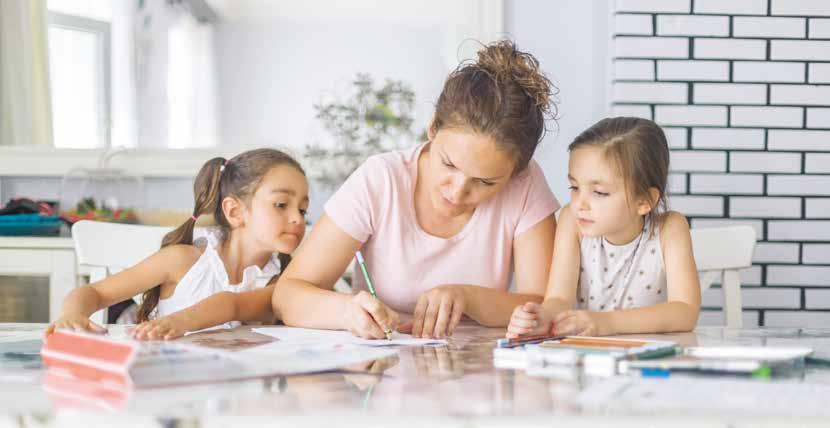
3 minute read
MAKE IT FUN
FUN TIPS
You’re working from home, the kids are off school, you can only go out for essentials and exercise. Self isolation could mean whole families are together, all day, every day for more time than they’ve ever been.
How do you cope without at best having niggles or at worst having full blown disputes – and not being able to let off steam?
Educational psychologist Zubeida Dasgupta told the BBC that structure is important. She knows from her own experience the need for flexibility.
LOOSEN UP
Having certainties through a bit of structure could really help,” she says. But not too rigid. Her original schedule with 30 minute chunks is now less rigid and more focused on ticking off tasks each day. “We had to loosen up in terms of accepting they are going to watch telly,” she says.
DON’T TURN YOUR HOME INTO A CLASSROOM
Mind website offers strategies for teens facing what it describes as a new (temporary) normal, including staying in touch with friends and dealing with cyberbullying.
Eloise Rickman, who runs courses on home schooling says while children thrive on predictability, especially when life is changing around them, learning at home is not simply replicating school at home.
It’s not necessary to do six hours of learning like in school, she says, as lessons will be one on one and so more intense. Any schedule should be more like a “flow” – rather than something strict. She suggests creating weekly or daily activities and then read the plan out or “stick it on the wall”. She recommends making spaces for children to do arts or craft – for example covering a coffee table with newspaper and arranging pens in mugs – and even moving furniture.
“If you don’t want the kids looking at the TV for five hours a day, think do we need to
rejig the furniture? Do we want to think about pushing tables back so the kids have space to run about, especially if you have a flat.”
“This is a time we need to prepare for our houses to be a bit messier. Having kids about all day, it’s going to get messy.”
TAKE A DEEP BREATH
Her advice to parents at home with children is to think about themselves first. “Children respond so much to us and our leadership. Before you go down rabbit holes looking for curriculum think about how to support yourself first because you are that bedrock.
“Even just opening a window and taking 10 deep breaths, doing a free three minute meditation or writing down 10 things you’re grateful for.”
Mind: mind.org.uk
STAY ACTIVE
DESIGN and build an obstacle course in the garden, or get growing... plant some seeds and watch them grow!
BUILD A READING DEN
Find some spare sheets or a blanket, crawl inside and read a book. You could write a review after!
RSPB WILD CHALLENGE
Go to www.rspb.org.uk to see how to get involved.
TRY SOME JUNK MODELLING
what’s the tallest tower you can make?
LEARN SOMETHING NEW
like how to french plait your hair or why not try a new language?
GET CRAFTY
Make a card or gift. Use as many recycled materials as possible.
KEEP A NATURE DIARY
See what you can see out of your window and draw pictures of them.
MAKE AN INSTRUMENT
out of ‘junk’ you can thenrecord yourself playing it.
FIND A RECIPE
and cook a tasty treat. Don’t forget to take a picture before you eat it all!
FUN TIPS

• Clear off your children’s book shelves replace books into columns based on colour
• Have a readathon. Pile up sleeping bags, sofa cushions, or a tent. Have snacks for the duration and set a time. Read or listen to an audio book together that has a movie adaptation you can watch later
• Design and make a board game basedon a book or other interests
• Take a photo of someone or something in your household and draw a portrait – compare at the end!
• Go undercover – come up with a code so you can send messages. Use numbers, letters and pictures then see if someone can crack your secret message.










